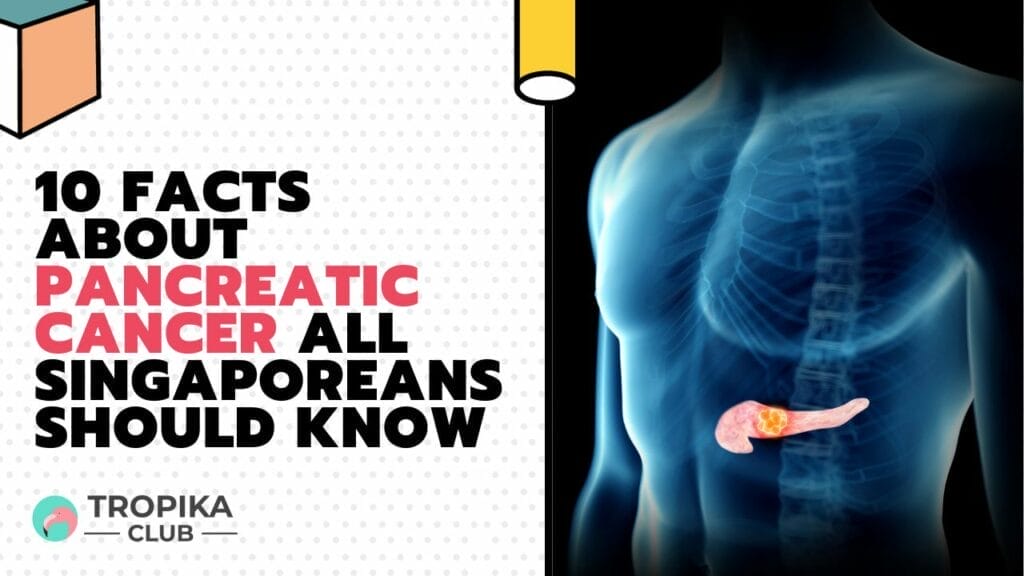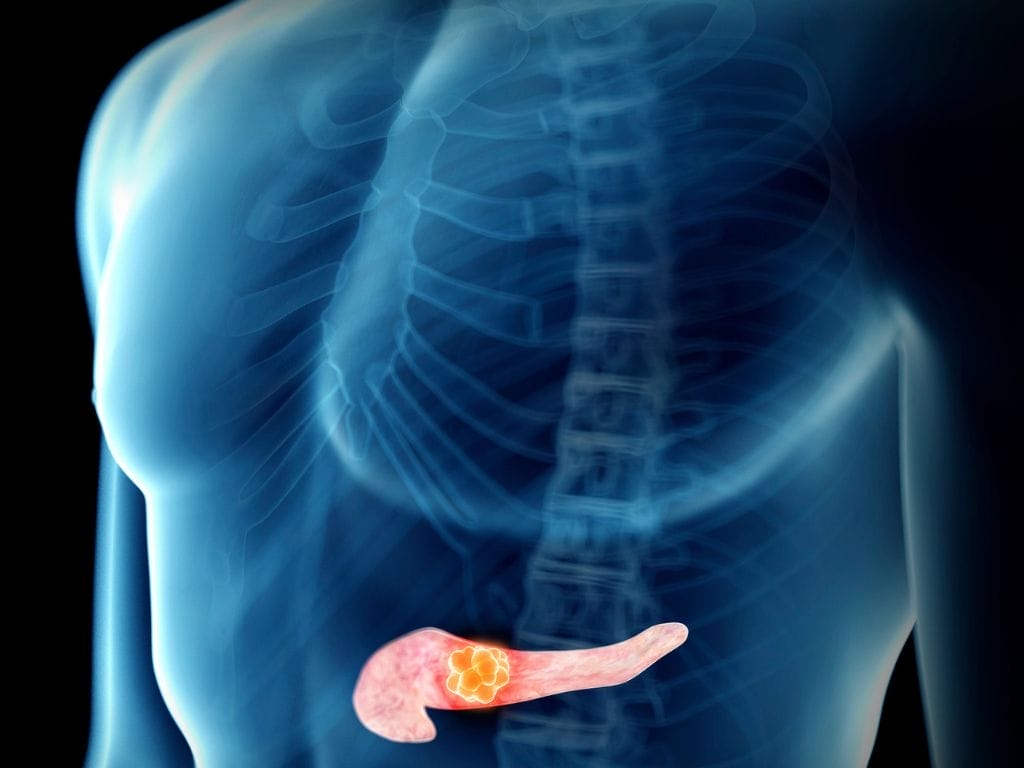10 Facts about Pancreatic Cancer All Singaporeans Should Know

No Time to Read? Here’s a Snappy Summary of This Article
- Silent Threat: Pancreatic cancer often hides, revealing itself through subtle signs like unexplained weight loss and abdominal pain.
- Singapore’s Challenge: Pancreatic cancer holds a significant presence in Singapore’s cancer landscape, warranting increased awareness and understanding.
- Unveiling Risk Factors: Discover how family history and lifestyle choices may impact the likelihood of pancreatic cancer among Singaporeans.
- Community Support: Singapore boasts active campaigns and support groups, offering a network for those affected by pancreatic cancer.
- Lifestyle Armor: While prevention isn’t guaranteed, adopting a healthy lifestyle, including diet and exercise, might help reduce pancreatic cancer risks.
- Knowledge Hub: Seek reliable information on pancreatic cancer treatments and advancements at Singapore’s National Cancer Centre.
Table of Contents
- No Time to Read? Here’s a Snappy Summary of This Article
- 1. What is Pancreatic Cancer?
- 2. Prevalence in Singapore
- 3. Risk Factors
- 4. Common Symptoms
- 5. Diagnostic Methods
- 6. Treatment Options
- 7. Survival Rates
- 8. Prevention Strategies
- 9. Support and Resources
- 10. The Importance of Awareness
- Meanwhile, Check Out Tropika Club’s Ecosystem of Websites
Introduction
Pancreatic cancer is a subject that often goes under-discussed, yet its impact on the Singaporean community is significant. As a silent killer, it’s crucial to shed light on this disease to promote early detection and effective treatment. This article aims to provide you with 10 essential facts about pancreatic cancer that every Singaporean should know.

1. What is Pancreatic Cancer?
Pancreatic cancer is a type of malignancy that originates in the pancreas, an organ located behind the stomach. The pancreas plays a vital role in digestion and hormone production. When cancerous cells form in the pancreas, they can interfere with these essential functions, leading to a range of health complications. The disease is often asymptomatic in its early stages, making it particularly challenging to diagnose.

2. Prevalence in Singapore
Pancreatic cancer ranks as the sixth most common cause of cancer-related deaths in Singapore. The incidence rate has been gradually increasing over the years, making it a growing concern for the healthcare system. Early detection is crucial, yet the silent nature of the disease often leads to late-stage diagnoses, reducing survival rates.

3. Risk Factors
Several risk factors contribute to the development of pancreatic cancer, including age, family history, smoking, and obesity. Individuals over the age of 45 are at higher risk, as are those with a family history of the disease. Lifestyle choices such as smoking and excessive alcohol consumption can also increase susceptibility.

4. Common Symptoms
Pancreatic cancer often presents with vague symptoms, making it difficult to diagnose in its early stages. Common signs include abdominal pain, unexplained weight loss, jaundice, and changes in bowel habits. If you experience any of these symptoms, it’s crucial to consult a healthcare professional for proper diagnosis and treatment.

5. Diagnostic Methods
Diagnosis of pancreatic cancer typically involves a combination of imaging tests, such as CT scans and MRIs, and biopsy procedures. Blood tests may also be conducted to check for specific markers associated with the disease. Early diagnosis is crucial for effective treatment and improved survival rates.

6. Treatment Options
Treatment for pancreatic cancer varies depending on the stage and type of the disease. Surgical removal of the tumor is often the first line of treatment, followed by chemotherapy and radiation therapy. In some cases, targeted therapies and immunotherapies may also be considered.
_
Read Also:
Recognising the Different Skin Cancers and How to Prevent Them
_

7. Survival Rates
The survival rate for pancreatic cancer is relatively low, primarily due to late-stage diagnoses. The five-year survival rate is around 11%, making it one of the most lethal forms of cancer. However, early detection and prompt treatment can significantly improve outcomes.

8. Prevention Strategies
While it’s challenging to prevent pancreatic cancer entirely, certain lifestyle changes can reduce risk. Quitting smoking, maintaining a healthy weight, and regular exercise are some of the preventive measures that can be taken. Regular screenings for high-risk individuals are also recommended.

9. Support and Resources
Support for pancreatic cancer patients and their families is crucial for mental and emotional well-being. Various organizations and healthcare facilities in Singapore offer support groups, counseling services, and educational resources to help manage the disease better.

10. The Importance of Awareness
Raising awareness about pancreatic cancer is essential for early detection and effective treatment. Public health campaigns, educational seminars, and community outreach can play a significant role in informing the Singaporean population about this deadly disease.
Conclusion
Pancreatic cancer is a severe health issue that requires immediate attention and awareness, especially within the Singaporean community. By understanding these 10 essential facts, you are better equipped to take proactive measures for early detection and effective treatment. Knowledge is power, and in this case, it could very well save lives.

Frequently Asked Questions (FAQ)
Q: What are the common symptoms of pancreatic cancer?
A: Recognizable symptoms include abdominal pain, jaundice, and unexplained weight loss.
Q: How prevalent is pancreatic cancer in Singapore?
A: Pancreatic cancer constitutes a significant portion of cancer cases in Singapore, emphasizing the need for awareness.
Q: Are there any specific risk factors for pancreatic cancer among Singaporeans?
A: Certain risk factors, such as family history and smoking, may increase the likelihood of pancreatic cancer in the Singaporean population.
Q: What initiatives exist in Singapore for pancreatic cancer awareness and support?
A: Singapore hosts various awareness campaigns and support groups, fostering a community for those affected by pancreatic cancer.
Q: Can pancreatic cancer be prevented through lifestyle changes?
A: While no guaranteed prevention exists, maintaining a healthy lifestyle, including a balanced diet and regular exercise, may reduce the risk.
Q: Where can Singaporeans find reliable information about pancreatic cancer treatment options?
A: The National Cancer Centre in Singapore provides authoritative information on treatment options and advancements in pancreatic cancer care.

Have an Article to Suggest?
Tropika Club is always looking for new and exciting content to feature in their magazine and they value the input of our readers. If you have any noteworthy content or articles that you believe would be a great addition to Tropika Club’s magazine, we are open to suggestions and encourage you to reach out to us via email at [email protected]. By doing so, Tropika Club values your expertise and knowledge in the matter and appreciates your willingness to help. We will review your recommendations and update our list accordingly
Meanwhile, Check Out Tropika Club’s Ecosystem of Websites
Tropika Club Magazine – Tropika Club Magazine is a Singapore-based publication that features articles on a wide range of topics with a focus on local businesses and content for the region. The magazine emphasizes supporting local businesses through its #SupportLocal initiative, which includes coverage of everything from neighborhood hawker stalls to aesthetic clinics in town. In addition to highlighting local businesses, Tropika Club Magazine also covers a variety of local content, including beauty, lifestyle, places, eats, and what’s on in Singapore and the Asia Pacific region.



